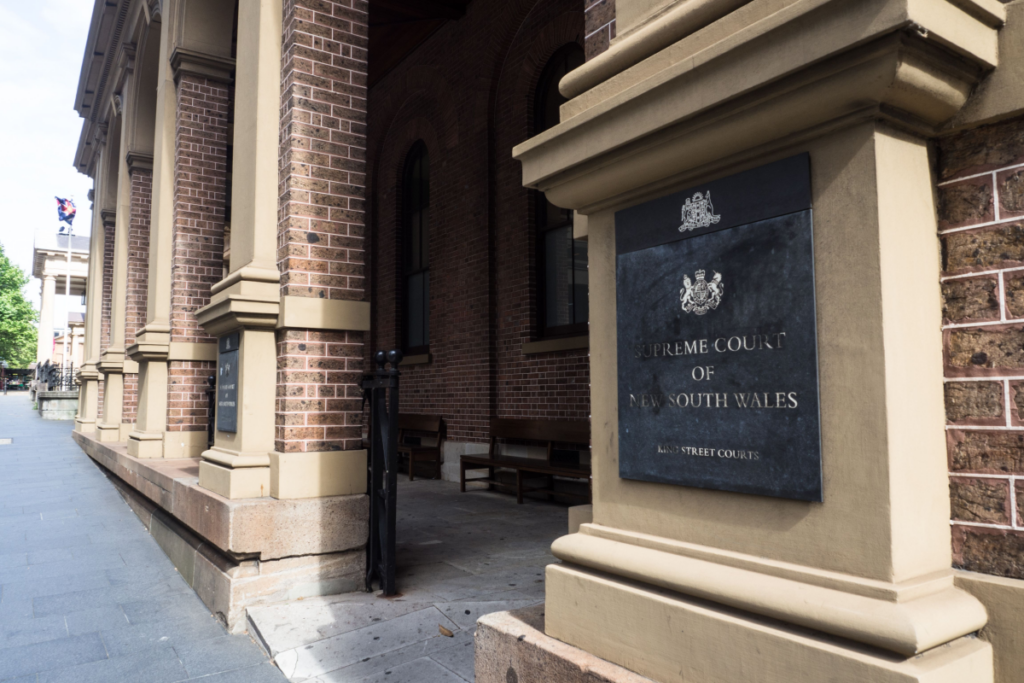Whilst many aspire to have their case heard in the High Court, the only cases that can be heard are those relating to the interpretation of the Constitution or matters that have come from the Supreme Courts of the states and territories.
The Appeal Process
Appealing from the Local Court
If you have been convicted of an offence in the Local Court, you can appeal to the District Court.
This right is protected under section 11 of the Crimes (Appeal and Review) Act 2001.
The Act stipulates that any person who has been convicted or sentenced by the Local Court has a right to appeal to the District Court against the conviction or sentence (or both).
This means that you can appeal against the verdict (i.e. the Court has found you guilty and you believe you are innocent). This is called a conviction appeal.
You may also appeal the sentence that has been imposed (i.e. you believe the penalty is too harsh). This is called a severity appeal.
If you appeal both your conviction and your sentence this is called an ‘all grounds appeal’.
If you wish to appeal your conviction you can do so once your sentence is imposed. An appeal must then be lodged within 28 days of the sentencing.
Appealing from the District or Supreme Courts
If you are convicted or sentenced in either the District or Supreme Courts and lodge an appeal this is called an ‘indictable appeal’.
Indictable appeals are heard by the NSW Court of Criminal Appeal (NSWCCA).
However, unlike appealing from the Local Court, there is no ‘right of appeal’ to the NSWCCA. To appeal to the NSWCCA, you must obtain leave from the court.
What is the Appeal Process to the NSWCCA?
You have within 28-days from the day of conviction or sentence to lodge:
- A Notice of Intention to Appeal; or
- A Notice of Intention to Apply for Leave to Appeal
The court can extend this 28-day period if it is considered in the interest of justice.
Once the Notice of Intention to Appeal is filed, it will last for 6-months before it expires. During the 6-month period, you are required to file the following if you wish to continue with the appeal:
- Notice of Appeal; and
- Grounds of Appeal; and
- Written submissions in support; and
- A certificate affirming that the transcript of the remarks, summing up and transcripts of the trial or sentence are available; and
- A statement outlining the lawyers appearing in the appeal for you.
The 6-month period before the Notice of Intention to Appeal expires can be extended by the court.
If the Notice of Appeal (or Notice of Application for Leave to Appeal) is not filed within 28 days, the formal notice of appeal with the above-listed documents must be filed within 3 months from the date of conviction or sentence.
If you wish to appeal to the NSWCCA, you should first obtain merit advice from an experienced appeals lawyer who will gather all the relevant documents for the case, including the transcripts and exhibits, to formulate an assessment of the likelihood of success by outlining what if any grounds of appeal there are in the case.
If there are no grounds of appeal discovered from a piece of merit advice, then it may not be worthwhile pursuing the appeal.
On the other hand, where grounds are found, pursuing it will be worthwhile.
When Will the Court Grant Leave?
A person convicted on indictment may be granted leave to appeal against their conviction on any ground that involves a question of law. According to section 6 of the Criminal Appeal Act 1912 (NSW), the Court will generally allow an appeal if it is of the opinion that:- A verdict was unreasonable or cannot be supported (having regard to the evidence); or
- There has been a wrong decision made regarding a question of law or
- There has been a miscarriage of justice
The Court will generally only grant leave to appeal the severity of a sentence if:
- The sentencing judge has made an error of law or
- Irrelevant or extreme considerations guided the sentencing judge; or
- The sentence was manifestly excessive (or, if the Crown appeals, manifestly inadequate).
Appeals to the High Court
Appeals against decisions of the NSWCCA are made to the High Court of Australia in matters of public or general importance.
The High Court does not automatically have the right to hear an appeal. As with the NSWCCA, the applicant must first obtain the High Court’s leave to appeal. Parties that intend to appeal must persuade the High Court that special reasons for an appeal exist. This often occurs in a preliminary hearing.
It is important to note that the High Court’s decisions on appeals are final, and there is no further avenue of Appeal.
If you or someone you know needs advice or representation for a criminal matter or an appeal, contact the team at Hamilton Janke today.
Key Takeaways
- Appeals from the Local Court to the District Court are protected under the Crimes (Appeal and Review) Act 2001, allowing appeals against convictions, sentences, or both.
- Appeals from the District or Supreme Courts to the NSW Court of Criminal Appeal require obtaining leave from the court.
- The appeal process involves filing a Notice of Intention to Appeal and, subsequently, a Notice of Appeal along with grounds of appeal and supporting documents.
- The appeal process involves filing a Notice of Intention to Appeal and, subsequently, a Notice of Appeal along with grounds of appeal and supporting documents.
Written By

James Janke
James Janke is founding partner at Hamilton Janke Lawyers, and has more then decade of experience as a Criminal Defence Lawyer. Admitted to both the Supreme Court of New South Wales and High Court of Australia




